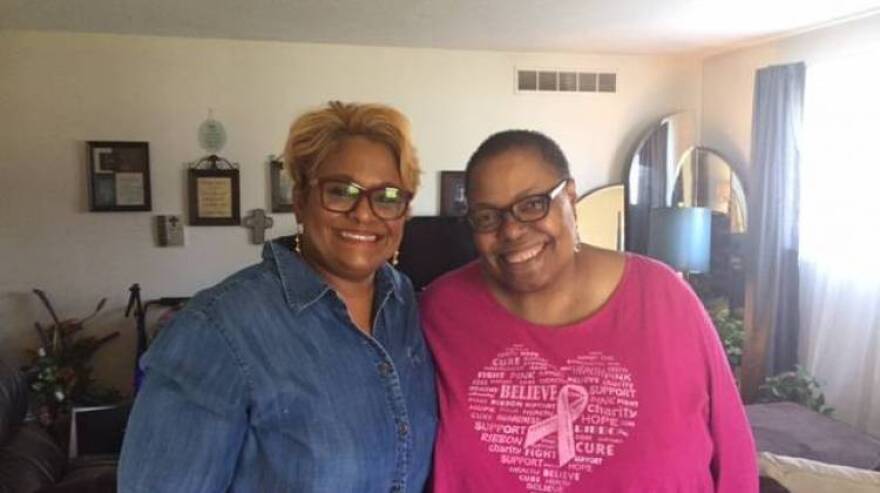Two out of every five Hoosiers are expected to develop cancer and studies show good nutrition enhances chances of survival. A program aims to support Hoosier cancer patients living with food insecurity with medically-tailored meals is getting a boost in Indy.
Food As Medicine
Last summer LaCheryl Hampton learned she had uterine cancer. Shortly after her diagnosis, a nurse mentioned a program where she could get free, medically-tailored meals through Meals on Wheels.
“I was in denial, I thought I’d be OK,” Hampton says. “So when they mentioned it to me I thought, ‘oh no, I’ll be OK.’ But then it was just so draining so I reconsidered.”
The meals are designed for cancer patients, using input from medical professionals. They are high in lean protein and heavy on vegetables. This is especially important for people going through treatment who have limited access to healthy food.
“For me it allows me to eat three basic meals,” says Hampton. “They’ll bring cereal and milk, and other pantry items.”
At Hampton’s home, on Indianapolis’s east side, she receives the meals five times a week.
Meals on Wheels assistant development director Kelly Feyock says the program lays the groundwork for better treatment outcomes.
“We’re looking for quality of life, and we want to make sure that everyone has access, we want to make sure the playing field is level,” Feyock says.
The program is a partnership between Meals on Wheels, Little Red Door and local hospitals. It’s funded by a grant from the Eli Lilly and Company Foundation.
Help from hospitals
In a large kitchen, in the basement of Eskenazi Health in downtown Indianapolis, associate culinary manager Antonio Gargano demonstrates how the meals are made.
“What we have is a salmon with a pico de gallo, green beans and a side of mac and cheese,” Gargano says.
Then they’re packaged and frozen, ready to be delivered to a number of Meals on Wheels programs that provide medically tailored meals, almost like prescribed food. There are currently 35 patients in their cancer program.
Meals on Wheels consulted doctors to determine what food a patient might need. Eskenazi oncologist Dr. Ahmad Al-Hader says it’s proper nutrition helps patient withstand treatments like chemotherapy.
“Side effects include nausea, vomiting, food might taste different, the other thing is it might cause mouth sores, dry mouth, constipation,” says Al-Hader.
Nutrition For The Whole Family
The Little Red Door Cancer Agency assists low-income cancer patients, and director Fred Duncan says the organization helped Meals on Wheels identify clients for the program –since they live below the poverty level the program provides food for the whole family.
“One of the things that we’ve learned is that if you’re a grandparent or a parent of small children you tend to feed your kids before yourself, even if you’re a cancer patient,” Duncan says.
He says the science supports the link between eating healthy and preventing disease. He says the recipients report they feel better.
Not A Bad Meal Yet
Today, 57 year-old LaCheryl Hampton says she feels pretty good. She has more energy and has cut back on the junk food. She lives alone, but her two sisters provide a lot of support.
“It’s a running joke with my sisters and I,” Hampton says. “They’ll be like, ‘OK, what did you have today,’ and I’ll be like, ‘I had baked chicken and turnip greens.’ And they’ll say ‘well you haven’t had a bad meal yet!’”
The Eli Lilly and Company Foundation says the program may receive additional funding if it continues to report positive results.





